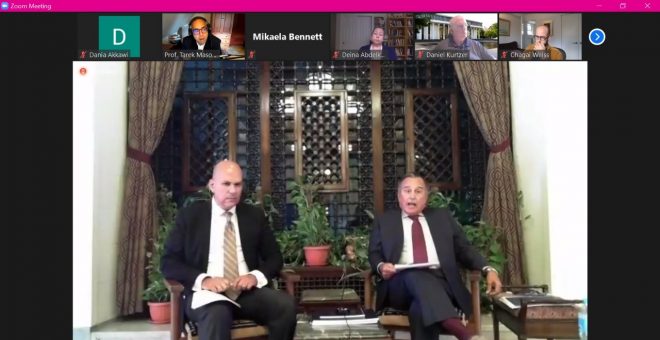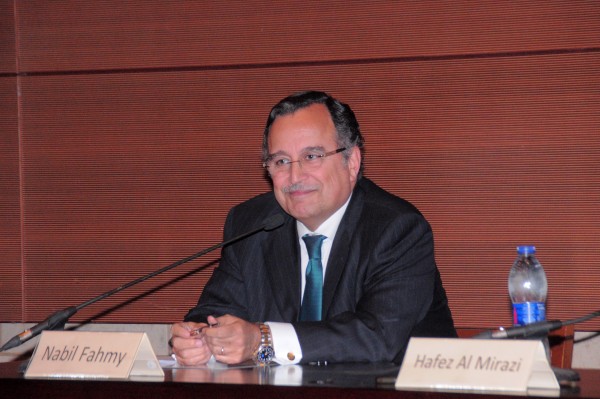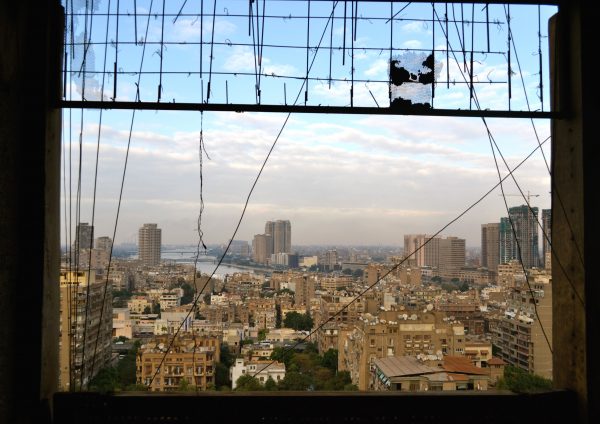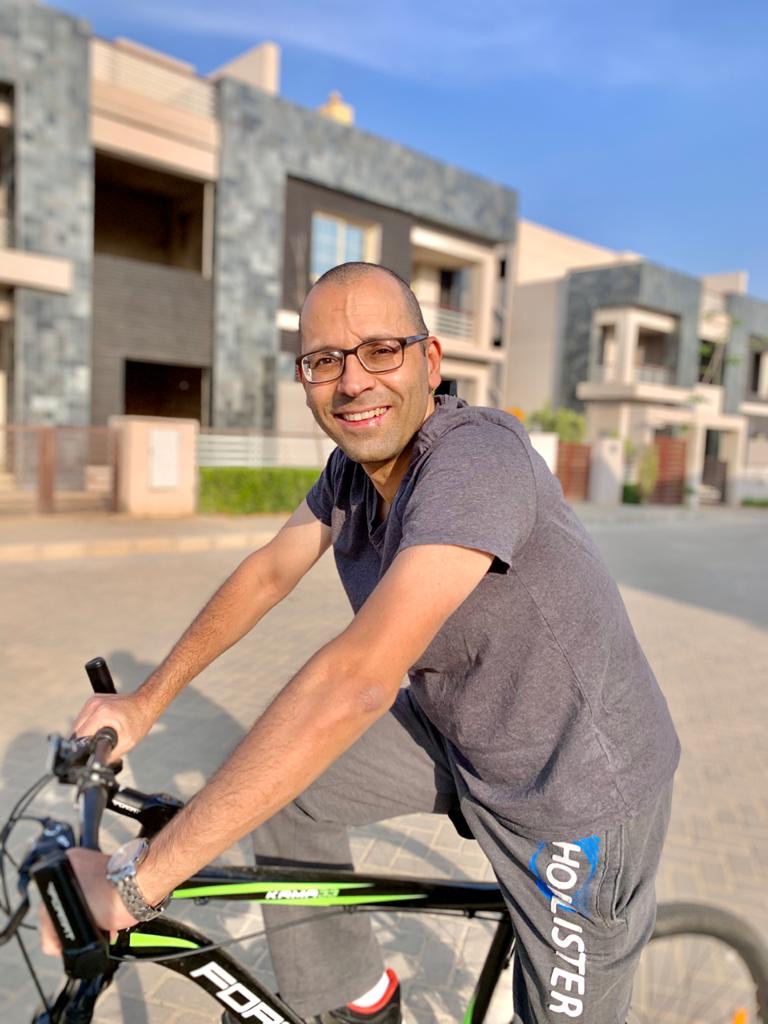East-West Dialogues: Arab Perceptions of the US
By: Lilian Gamal
@LillianGamal
Photo courtesy: AUC Office of Communications
Dean of the School of Global Affairs and Public Policy Nabil Fahmy last week addressed the questions many political pundits have raised about America’s leadership role following its unilateral policy changes in the Middle East.
This comes against the backdrop of anti-racism and anti-police brutality demonstrations, which rocked many US cities in the early summer, and the upcoming presidential election.
“To witness these current turbulences raises the question of whether or not Americans have resolved their internal conflicts. America’s trying to search for itself. What it is, and what it wants to be,” Fahmy said during the Fall 2020 Middle East Initiative (MEI) Series, USA 2020: The View from The Arab World – a series of dialogues with prominent Arab thinkers.
MEI Faculty Director and Sultan Qaboos Bin Said of Oman Professor of International Relations Tarek Masoud and MEI visiting Fellow and Professor of Practice at AUC Karim Haggag co-hosted the discussion as they attempted to make sense of how the US elections and the country’s recent history will impact the Middle East.
A US Retreat?
Masoud wanted to understand how allies and rivals perceive the US and its role given that its influence may be weakening in the Middle East.
Fahmy said that America needs to be more vigilant in terms of defending the rights of its allies, and not be preoccupied with self-serving interests of security at the expense of other countries.
He said that the US is undergoing a new quest for its identity, but should nonetheless balance maintaining its security and being a proactive participant in conflict resolution.
Essentially, the image of America is changing in the eyes of the Middle East, and perhaps the rest of the world too.
“I actually believe that less people want to emulate America now because of its problems domestically and less people want to depend on America politically, because they don’t want it to exercise the power it had in the past,” Fahmy said.
An example of this would be the invasion of Iraq in 2003. Fahmy said that America moved astray from what constitutes right and wrong when it invaded and occupied Iraq in search of weapons of mass destruction, which were never found. There were no legal mandates for this invasion, and the arguments made by the Bush administration at the time turned out to be unfounded.
“Right or wrong according to America doesn’t interest me, right or wrong according to the law is what interests me. We need to have international order based on law, to preserve our rights,” Fahmy said.
Reliable Provider of Security
Domestically, Masoud wanted to understand the nature of the current protests and divisions that the US is currently facing especially since most observers believed that the US had a resilient democratic system capable of efficiently absorbing any internal strife.
But Fahmy said that he’s not a big proponent of the concept of “American Exceptionalism” because the US is not any more exceptional or unique than any other country. If anything, America has construed its individualistic narrative based on its own version of right and wrong.
Because of this, Fahmy mentioned that there seems to be a divided opinion on whether or not America makes the right decisions politically, let alone making the right decisions strategically with other countries.
“Most of the people I talk to, even those who might concur with [the issue that America has made unsteady and wrong decisions], ask why is America having so many problems? Why are they angry?” Fahmy said.

Discrepancies between Arab Authorities and The Arab Public on President Trump
Nevertheless, key Arab rulers continue to view US President Donald Trump favourably while most of the general Arab public do not.
“Arab public opinion in the polls suggest unfavorable views in May 2019. According to the Washington Institute for Near East Studies, statistics state that only 11 percent of Emiratis, 7 percent of Egyptians and 9 percent of Saudis view Trump as favorable,” Haggag said.
Fahmy mentioned that Trump and Arab leaders, including Egyptian President Abdel Fattah Al-Sisi, share aligned priorities, such as fighting regional Islamist extremism.
But what happens when the Trump administration pushes an agenda that is categorically against Arab interests?
Fahmy pointed to Arab public dismay of Trump’s unilateral recognition of Jerusalem as the capital of Israel, a violation of decades of US policy regarding the Middle East peace process.
“It’s easier to deal with Trump now. In the long term, it will be much more problematic. So Arab rulers are not neglecting the other problematic policies that Trump enforces, but they’re focused on imminent issues that need to be addressed in order of urgency,” Fahmy said.
He added that there are countries in the Middle East that are more concerned with their own immediate security and sheltering, rather than with regional conflict resolution, namely with the Arab-Israeli conflict.
Time and time again, history has proven old approaches and methods for resolution to be futile. As a result, Fahmy proposed the synthesis of new approaches where the region moves forward with its new agenda.
He urged the social mobilization of Egypt and the rest of the Middle East to take reign of its agenda and prioritize reaching resolutions for regional conflicts.
His top priorities are abiding by the rule of law, and the rule of international order whereby Egypt can secure itself as a state and still provide help for allies and friends in the region.
“That’s our role. That’s where we come in, that’s where active Arab stateship comes in. We need to put out ideas for the future agenda of the Middle East,” Fahmy said.
The Middle East Initiative (MEI) is a project by Harvard Kennedy School to advance public policy in the Middle East. This advancement happens through applied research, community engagement and leadership development in the region.




